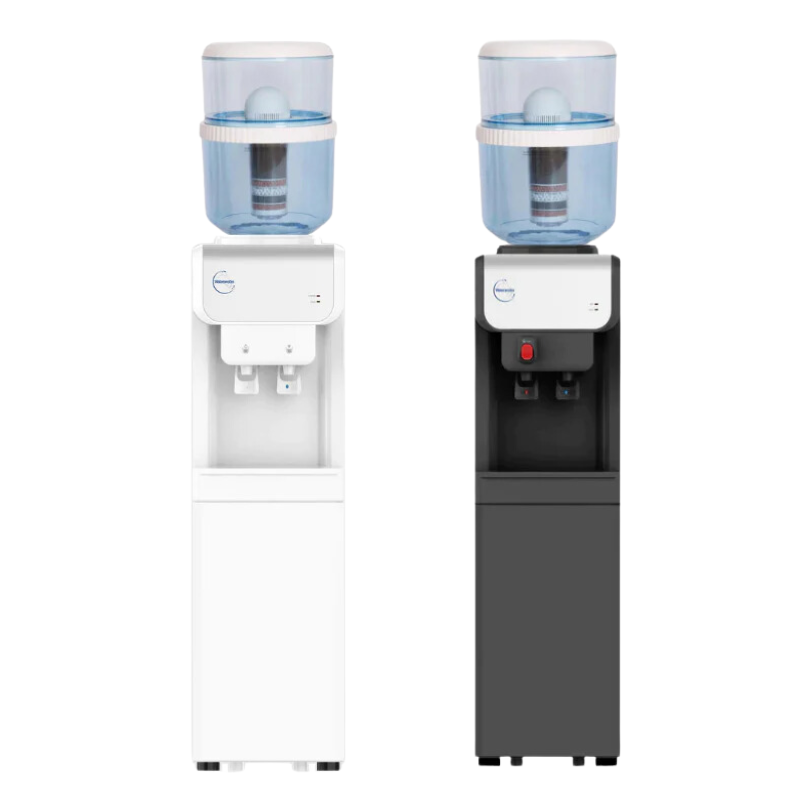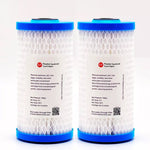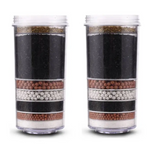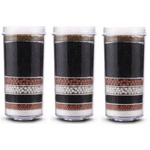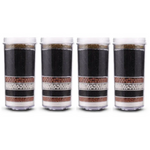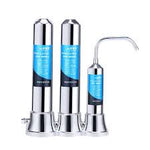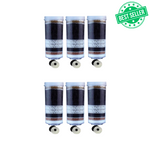You have no items in your shopping cart.
What Is the Purpose of Charcoal in a Water Filter?
Charcoal is a highly porous carbon formed when millions of micro-pores between carbon atoms open up after introducing oxygen. Charcoal can attract and hold a large number of pollutants as they travel through it. Activated charcoal production is by treating charcoal with oxygen and then adsorbing smells and colored compounds from liquids and gases.
The activated charcoal produces highly porous surfaces with pore sizes ranging from 300 to 2,000 meters per gram. By chemical attraction, activated charcoal adsorbs pollutants. Active charcoal's broad porous surfaces provide the ideal environment for bonding. It attracts and traps chemicals, chlorine, and carbon-based contaminants by the carbon surface.
Some compounds, such as salt and nitrates, are neither attracted nor trapped. A partial filter is an active charcoal. Because the activated charcoal stops working once it fills all pores, you must replace the filters immediately.
WHAT IS THE PURPOSE OF CHARCOAL IN A WATER FILTER?
To cleanse water, water filters employ a special type of charcoal known as 'activated charcoal.'
The process of adsorption is how activated charcoal works. Adsorption is not the same as absorption. Instead of physically absorbing pollutants, adsorption chemically bonds them to the surface of the charcoal filter.
Activated charcoal is an excellent water filter since it eliminates contaminants from the water without depleting it of essential minerals and salts.
Because it remains contaminants in the filter, it's critical to replace it once every 12 months to guarantee it continues to function properly.
HOW DOES IT WORK?
For starters, we don't filter water with those black BBQ bricks. Activated charcoal, which comes in solid blocks or loose beads, is used in water filters. To produce activated charcoal, regular heat charcoal without oxygen to 1000 degrees Fahrenheit. You should use argon and hydrogen to treat the charcoal. To make a porous structure, superheat while introducing oxygen. Activated charcoal is the final product.
Adsorption, a chemical mechanism that attracts and binds pollutants, is how active charcoal works. The increased surface area for adsorption is due to the many pores that opened up during activation. Active charcoal is a helpful material for water filtration because it eliminates contaminants from water, such as chlorine and volatile organic compounds. It does not utilize chemicals or remove essential minerals from the water. It draws some impurities to carbon, but it allows to pass those that aren't.
The creation of bonds between the substance and the filter occurs as a result of adsorption. The filter traps all contaminants, and once the pores are full, it stops working. It would be best if you replace the filters regularly. It's inexpensive, making it a popular choice among many families.
TYPES OF ACTIVATED CHARCOAL FILTERS
Powdered Activated Charcoal Filters (PAC)
These carbon barriers prevent carbon particles from moving around one another. It helps to prevent water channeling, which is a major issue with GAC charcoal filters. The following factors evaluate the efficacy of a powdered carbon block charcoal filter system:
- The length of the water within the block.
- The carbon distribution particle size.
The manufacturer determines the design to meet each condition depending on the water quality and quality the filter intends to handle.
Granulated Activated Charcoal Filters
A loose bed of carbon filters makes up this filter. A cylinder casing is mainly used to store carbon. The carbon filter ratio is determined by the velocity of water moving through the housing. Fluidization is combated with GAC carbon filters. The loose structure of GAC carbon filters limits the carbon filter's ability to provide all of its benefits.
USING CHARCOAL FILTERS FOR THE WHOLE HOUSE
Charcoal filters are ideal for homes that consume a lot of water regularly. They're good at getting rid of bad tastes in water. Because charcoal filters do not require power to operate, they benefit by avoiding rising costs. They are passive filters that rely on pipe pressure and gravity for most of their operation.
Charcoal filters remove dangerous impurities while retaining vital nutrients for your body. These filters require very little care because they only need to be cleaned or replaced every few months. You may tailor your carbon filters to combat particular toxins found in your water. You can use other filters in conjunction with charcoal filters to eliminate traces of volatile compounds for improved water safety.
FINAL THOUGHTS: What Is the Purpose of Charcoal in a Water Filter?
Charcoal filters remove pollutants and contaminants from water by utilizing charcoal. Each charcoal particle has a surface area where chemicals can bind to it through adsorption. It does, however, keep the nutrients and minerals, which offer flavor and health advantages.
When it comes to eliminating chlorine from water, activated charcoal is a godsend. Chlorine kills bacteria but leaves an unpleasant taste in the water. Before contemplating other types of filters, homes should use charcoal filters to purify their water.
Charcoal filtration is a passive water purifying technology. It doesn't need the use of electricity or any other form of energy. To remove contaminants from water, it uses water pressure and the structure of active charcoal.
Its upkeep entails regular cleaning and the replacement of readily available filter elements periodically. It makes it cost-effective to operate. Even better, the installation and maintenance costs are very modest.

